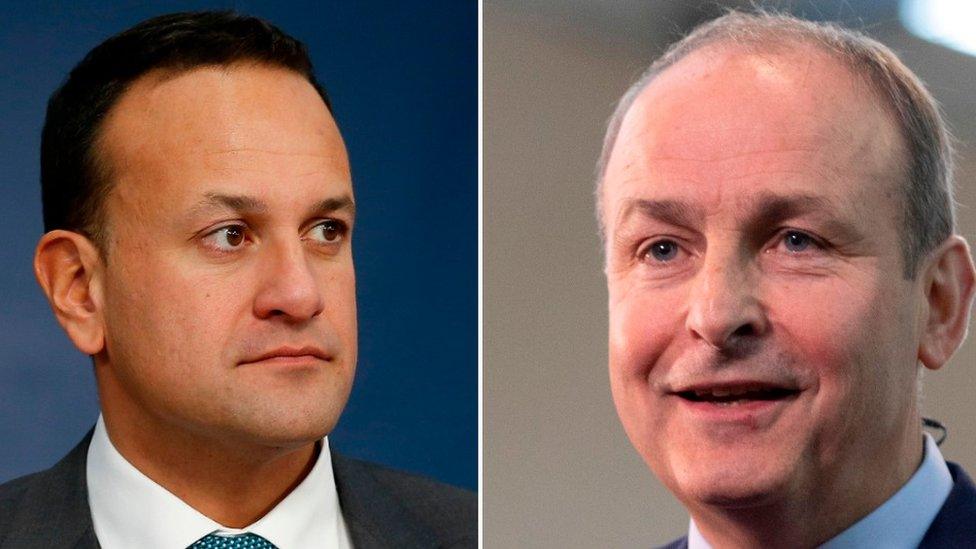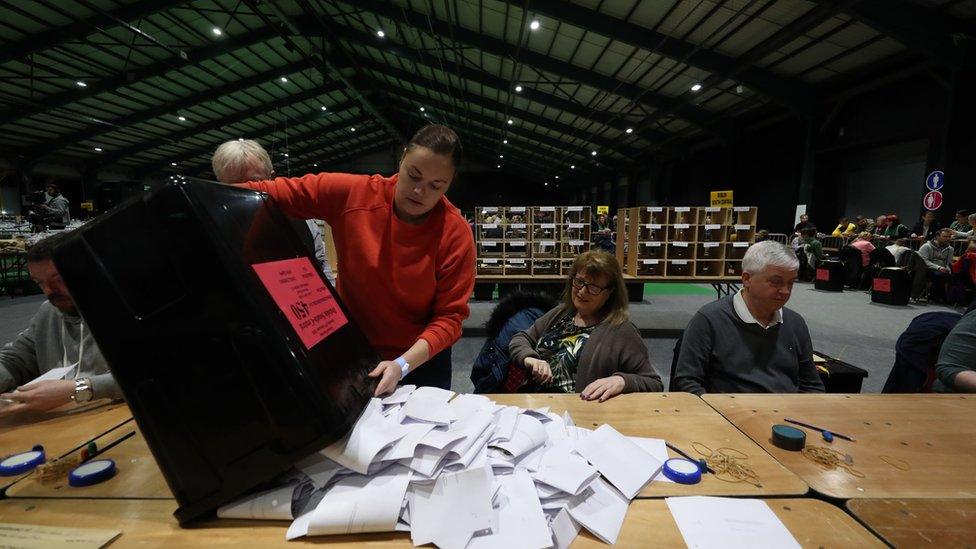Irish rivals Fine Gael and Fianna Fáil agree plan for government
- Published

Leo Varadkar leads Fine Gael while Mícheál Martin is the head of Fianna Fáil
The leaders of Fine Gael and Fianna Fáil have formally signed off on a framework agreement for a future coalition government.
Leo Varadkar and Mícheál Martin will put the deal before both parliamentary parties on Wednesday afternoon.
Their negotiators agreed the deal on Friday.
It is the first time the two parties that have roots in the Irish Civil War almost a century ago have reached an accord to share power in government.
Securing a majority
If, as expected, party members endorse it, Fianna Fáil and Fine Gael will then present it to the Greens, Labour, the Social Democrats, and some independent TDs (members of the Irish parliament) in the hope of getting enough votes to get a Dáil (lower house) majority.
The two parties are eight votes short of a majority and have in the past said they would like at least one other party and some independents to sign up for a government that would last at least four years.
To date the other political parties have been reluctant to do so, while both Fianna Fáil and Fine Gael refuse to do a deal with Sinn Féin.
Fianna Fáil was the largest party in terms of seats following the general election in February, but it and Sinn Féin now have the same number of seats after a Fianna Fáil TD was elected speaker.

Sinn Féin won the most first preference votes
Sinn Féin won the most first preference votes, with Fine Gael the third-biggest party.
Negotiations have been ongoing since the election.
BBC News NI Dublin Correspondent Shane Harrison said it was expected Mr Martin would take over from Mr Varadkar as taoiseach (Irish prime minister) because his party won more seats.
Opposition
It is known the deal is not very specific on policy but prioritises dealing with Covid-19 and its economic consequences.
Fianna Fáil and Fine Gael hope the deal will gain enough acceptance to indicate there will be a Dáil majority for it.
It will then have to be endorsed by an extraordinary Fine Gael party conference and a Fianna Fáil ard fheis (conference).
Eamonn Ó’Cuív, a grandson of Fianna Fáil’s founder, Eamonn de Valera, has already indicated his opposition.
The aim is to get a government formed on 23 April at a planned Dáil session in the National Convention Centre, a building that will allow all 160 TDs to assemble and observe social distancing.
- Published5 March 2020

- Published10 March 2020
